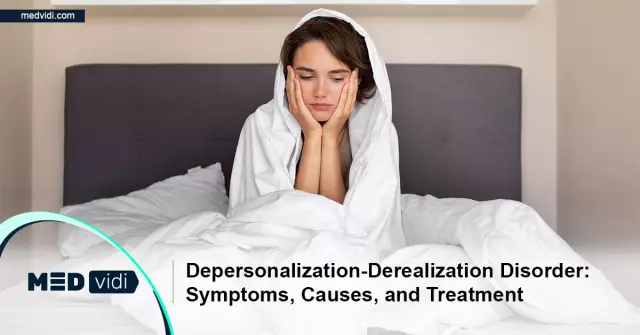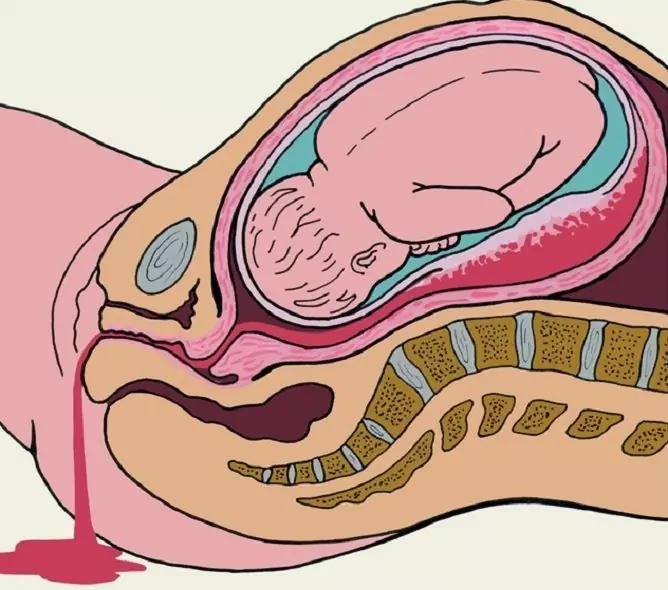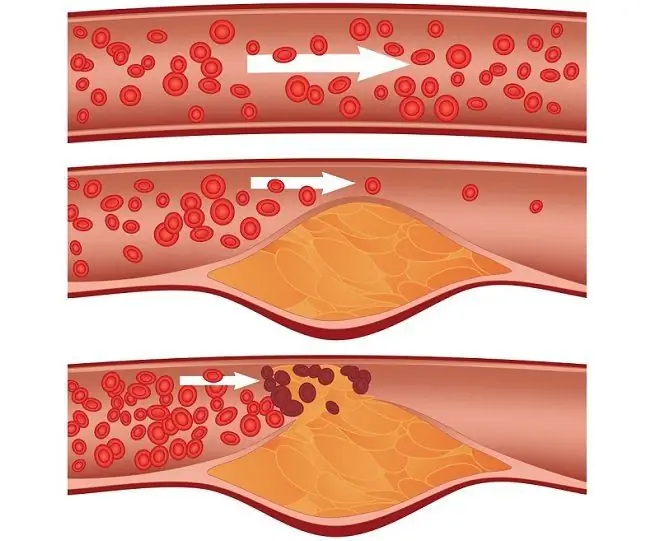- Author Rachel Wainwright [email protected].
- Public 2023-12-15 07:39.
- Last modified 2025-11-02 20:14.
Derealization

Derealization is a mental disorder consisting in a violation of the perception of the surrounding world and events in it. The disorder is accompanied by alienation from the social environment, a sense of unreality and remoteness of society.
Causes and symptoms of derealization
The syndrome of derealization is accompanied by a distorted perception of reality, depression and an incorrect assessment of the surrounding space. Patients retain self-control and adequate behavior.
This disorder is psychotic and neurotic in nature, and is also often combined with depression, neuroses and anxiety.
Most of the causes of derealization are based on deprivation and its consequences. As a result of distorted perception, reality becomes indistinct, slowed down, alien and strange. All events and phenomena are viewed by the patient through film and fog, and sometimes are perceived as scenery.
The main reasons for derealization include:
- prolonged suppression of one's own desires and the impossibility of self-realization in society;
- severe stress, chronic fatigue and overwork;
- taking narcotic and psychotropic drugs;
- traumatic situations of a psychological and physical nature - an accident, the loss of a loved one, panic attacks, etc.
Derealization syndrome is often similar to depersonalization, but it has symptoms of a different nature and expression. The main symptoms of derealization are associated with mental changes, loss of orientation in space and time, alienation from the social environment and the breakdown of social ties. Prolonged depression and melancholy, isolation and refusal to communicate with people can lead to derealization.
In psychiatry and neurology, the following symptoms of derealization are distinguished:
- distortions in the perception of the surrounding world;
- distortions in sensory and sound perception;
- lack of color perception;
- slowdown or complete stop of time;
- lack of perception of their actions in society, the feeling of observing oneself and others from the outside.
Diagnosis of the disease
Derealization syndrome is diagnosed by a psychiatrist and a neurologist in the presence of psychopathological manifestations. Derealization proceeds without imaginary perceptions, illusions and hallucinations, mental automatism.
To diagnose the disease, the patient must be examined by a neurologist and psychiatrist, who use the Nulller scale to determine an accurate diagnosis.

If necessary, blood and urine tests, ultrasound and MRI of the brain are prescribed.
Derealization treatment
If derealization is not a temporary protective mechanism of the psyche, then neurologists, psychotherapists and psychologists should deal with its treatment. Derealization syndrome should be treated in conjunction with the underlying mental illness and according to the patient's condition.
The initial stage in the treatment of derealization is to establish the causes of the disease and eliminate them.
By the type of derealization, drugs and medicines are selected. The composition of drug therapy includes the following drugs:
- tranquilizers (Phenazepam, Elenium, Tazepam, etc.);
- selective antidepressants (Venlafaxine, Gabapentin, etc.);
- vitamins and multivitamins.
The main feature of the treatment of derealization is the selection of individual therapy that will affect the entire set of aspects of the pathogenetic development of this disease. Treatment is prescribed taking into account the psychological type of the patient's personality, his autonomic nervous system and the state of the neurotransmitter system.
Modern therapies aimed at eliminating the symptoms of derealization consist of psychological modulating techniques, psychotherapeutic methods of recovery, hypnosis, synchronization modulation and sensory stimulation programs, cognitive and color treatment methods.
Treatment of derealization will be effective when prescribing special autopsychotherapy, improving the patient's living conditions, normalizing sleep, rest and nutrition. The patient needs regular physical activity, contrast showers, massage, swimming and relaxation procedures.
YouTube video related to the article:
The information is generalized and provided for informational purposes only. At the first sign of illness, see your doctor. Self-medication is hazardous to health!






